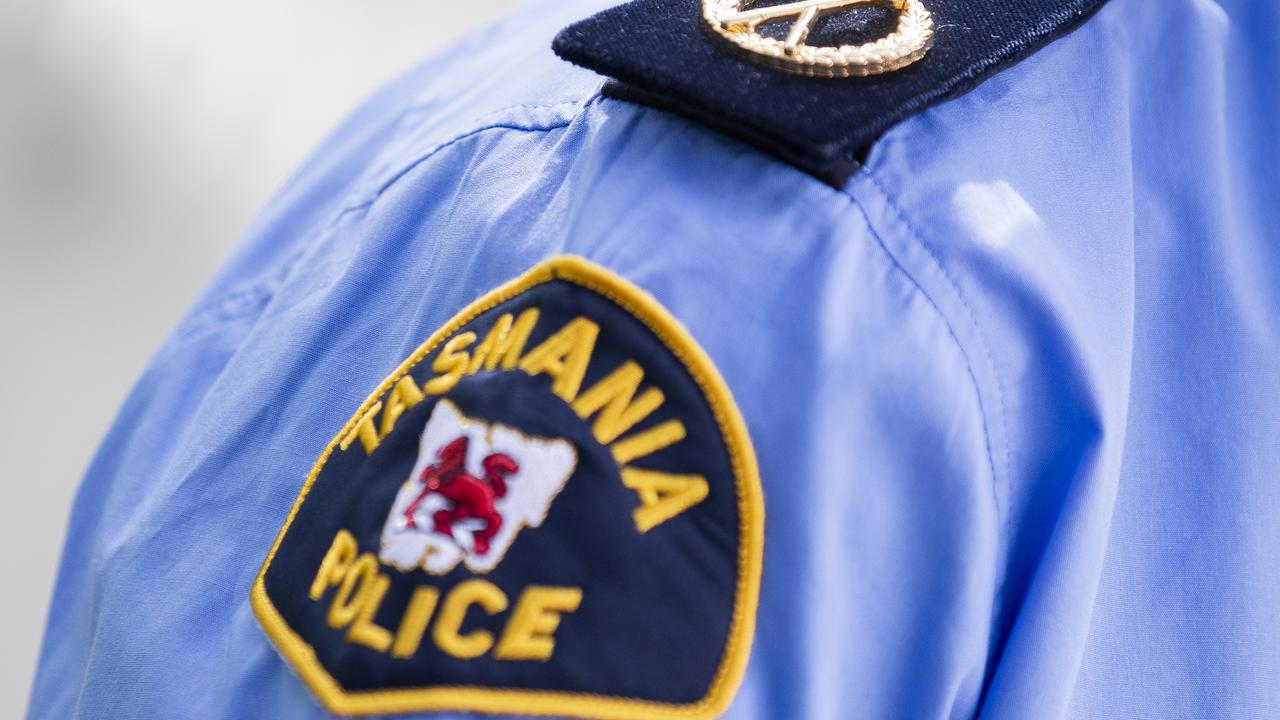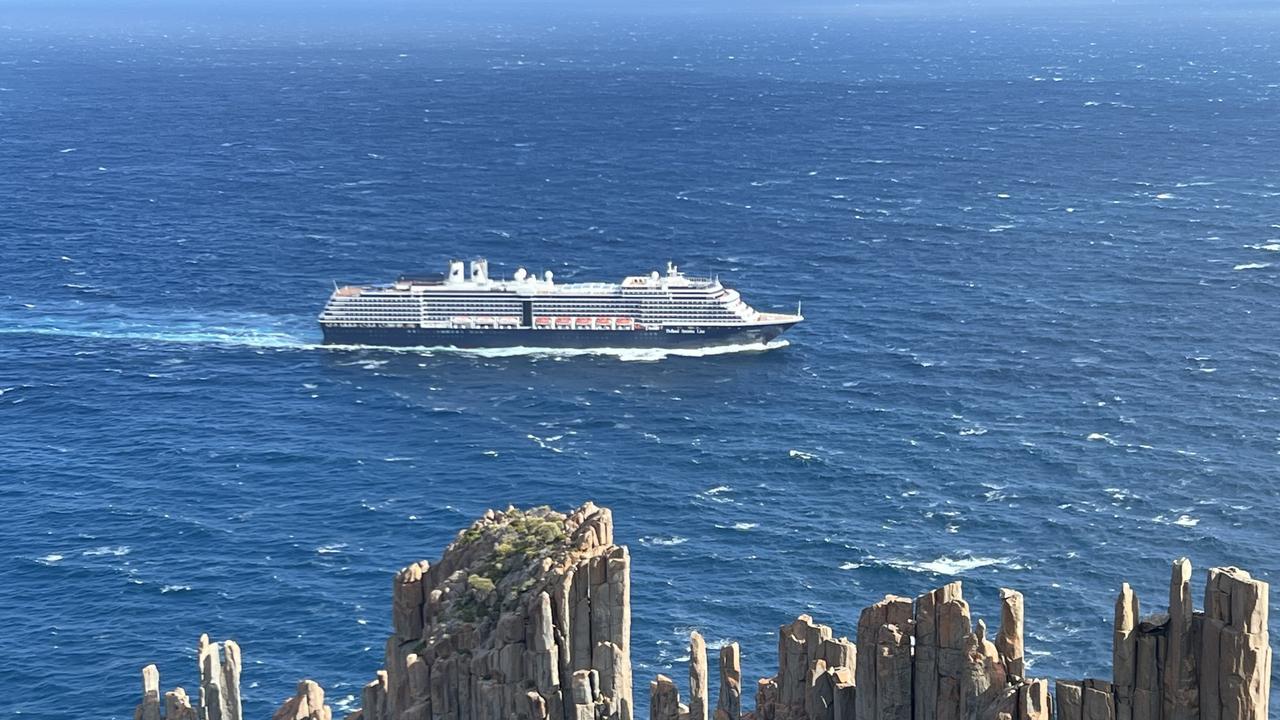GST shortfall will hasten Tasmania’s spiral into debt: ALP
Tasmania’s record debt will only become worse unless something is done to undo the “dud” GST sharing arrangements, the opposition says. LATEST >>
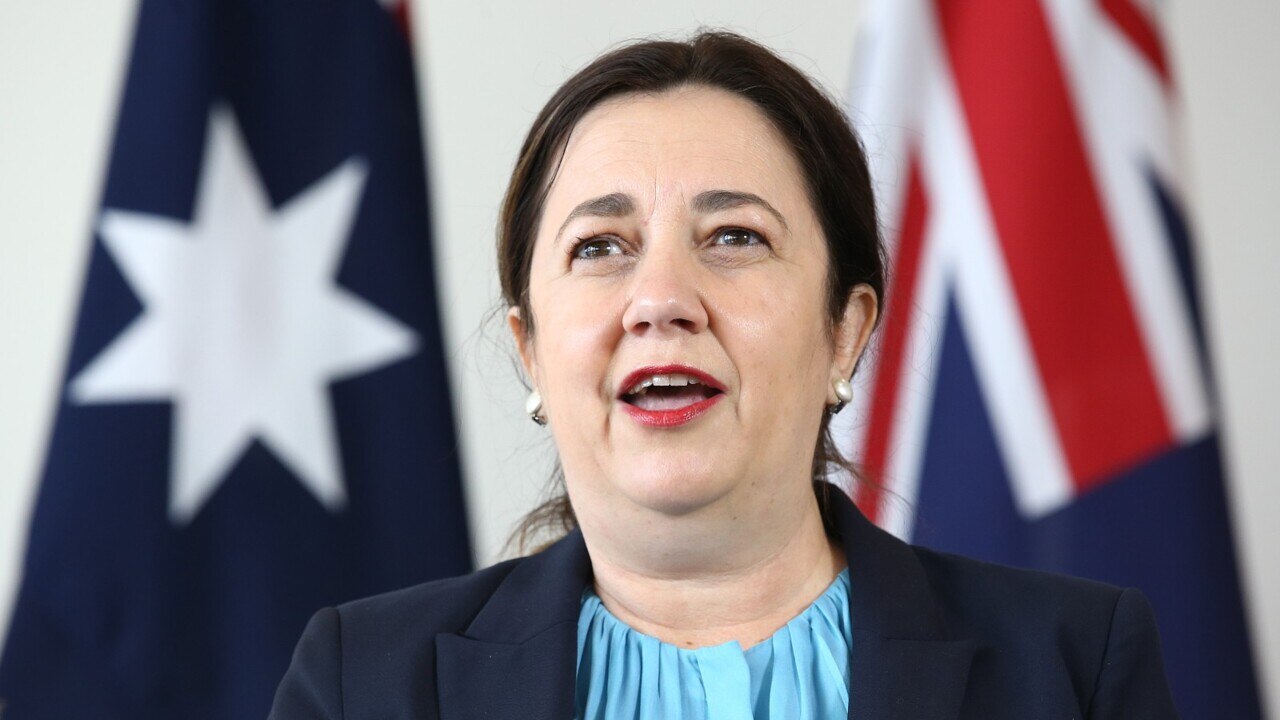
Tasmania
Don't miss out on the headlines from Tasmania. Followed categories will be added to My News.
- WA’s GST rort could leave Tasmania struggling
- GST windfall from federal budget will be a boon for state budget’s bottom line, says Deputy Premier
The “dud” GST deal struck by Peter Gutwein would hasten Tasmania’s spiral into unsustainable debt, Labor says.
Opposition finance spokesman Dean Winter said Treasury projections that Tasmania faced a $750m shortfall over the next decade painted a grim picture for future budgets.
The reduction in revenues made deficits and increasing debt absolute certainties, he said.
“We already know that Peter Gutwein is borrowing $2 million a day for the next four years because his budget is in significant deficit, because he’s running a very large debt,” Mr Winter said.
“We will in fact will have the largest debt Tasmania’s had ever by the end of the forward estimates — and up to $30 billion by 2035.
“At the same time, we’re talking about losing significant share of GST revenue, so this is a huge issue.”
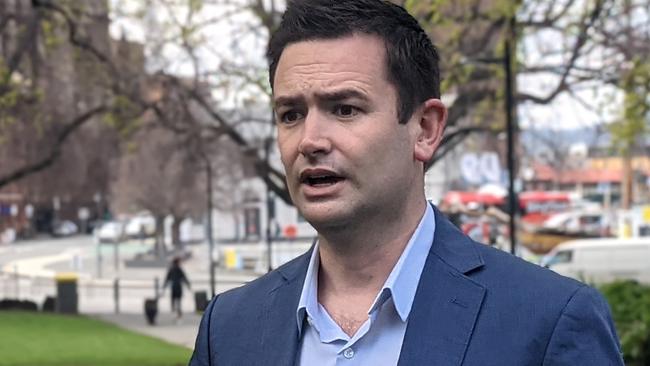
Mr Winter said the dilemma was the result of a deal done to boost GST revenues with Western Australia without leaving other states worse off.
In the short term, the deal worked to Tasmania’s benefit but the latest modelling estimates that after the federal government's ‘no state worse off’ promise expires in 2026/27, Tasmania could be up to $755 million poorer and WA could be up to $57.5 billion in the black.
But Mr Winter said the result was the fault of but one man.
“This is Peter Gutwein’s deal. In 2018, Peter Gutwein told us that we will be $112 million better off under the deal that he struck with the Australian Government,” he said.
“And what’s happened since then? It’s has all been laid out by Treasury and it says that we are going to be significantly worse off, Tasmania is going to be hundreds of millions of dollars worse off because of the deal that Peter Gutwein struck.”
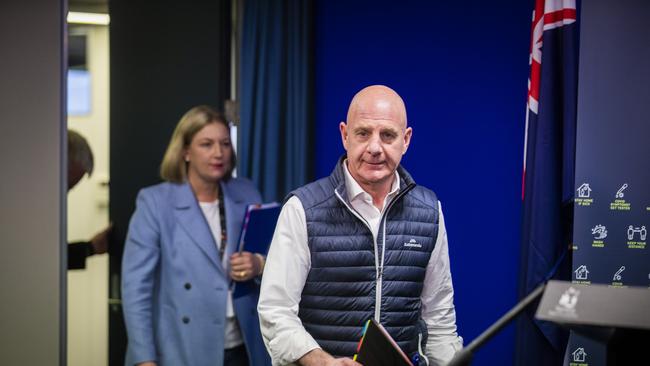
Mr Gutwein, who is both Premier and Treasurer, said his government would fight to ensure Tasmania received its fair share of GST revenues.
“While Dean Winter might try and rewrite history to suit the Labor Party, I have been very clear from day one that while we welcome the guarantee that is in place until 2026-27, the changed GST distribution model which Federal Labor also supported, is not in our long term best interests once the guarantee expires and provides Western Australia with a greater share, at the expense of other jurisdictions like Tasmania,” he said.
“The South Australian Government is commissioning an independent review into the new GST arrangements, which we support, however, the risks of the new GST distribution arrangements are ongoing.
“Our position is clear – the guarantee provided by the Australian Government should be a permanent arrangement, or we should revert back to the previous model.”
Unfair GST share could leave Tasmanians worse off | September 27
TASMANIA could struggle to fund essential services in a decade because of an unfair GST sharing deal that will drain an estimated three quarters of a billion dollars out of the state’s coffers.
State Treasury on Monday released an occasional paper examining the distribution of GST revenue between the states.
The federal government has made changes which boost Western Australia’s share, but has promised to leave no other state less off.
But the Tasmanian Treasury analysis reveals that every Tasmanian will be $147 a year worse off a year when that guarantee ends in 2027/28 — while West Australia is $1945 per person better off.
Modelling undertaken estimated that by 2031-32, Tasmania could be up to $755 million worse off while WA could be up to $57.5 billion better off.
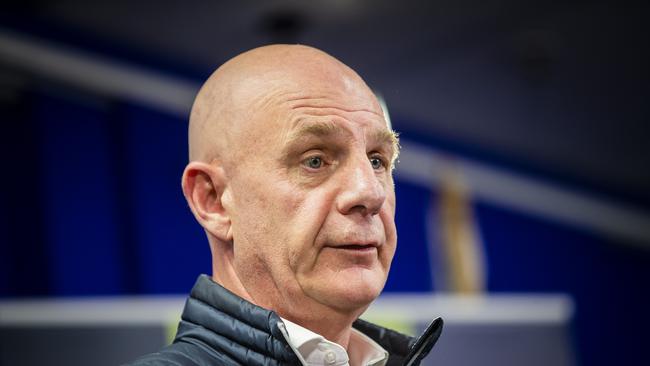
“The inequity embedded in the new GST distribution is rapidly becoming apparent,” the paper says.
“From 2031-32, Tasmania is estimated to be $100 million per annum worse off on an ongoing basis.
“This may significantly impact Tasmania’s ability to provide essential services, such as health, education and emergency services.”
GST revenues make up 41 per cent of state government revenue — and this years budget saw a windfall gain.
The WA government will be $5.6bn a year better off in the next few years thanks to soaring mining revenues — almost the same as the entire Tasmanian government expenditure.
After the WA government delivered a $5bn surplus in is recent state budget, Premier Peter Gutwein said the state should be “embarrassed”.
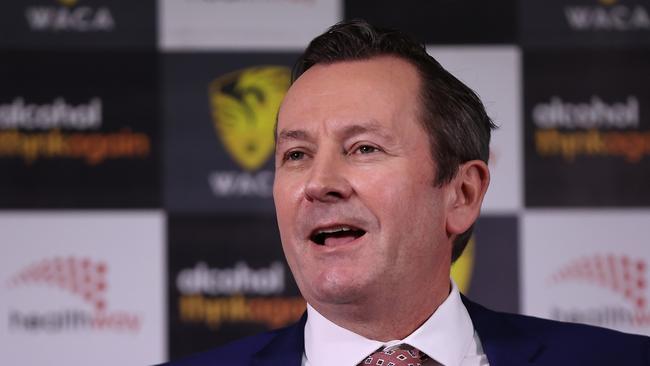
Treasury’s occasional paper says every state is suffering as a result of WA’s good fortune.
“This indicative modelling indicates that Western Australia is by far the main beneficiary of the new arrangements and that Tasmania (and the majority of other jurisdictions) will be worse off under the new arrangements,” it says.
“When the guarantee ends in 2027-28, Treasury has forecast that Tasmania’s GST revenue will decrease by $83 million in that year under the new arrangements or $147 per person.
“In comparison, Western Australia is expected to gain $5.6 billion, or $1 945 per person, in GST revenue in 2027-28 under the new arrangements.”
Mr Gutwein said the govenrment would fight for the state’s fair share of GST revenues.
“We have been very clear that whilst we welcome the guarantee that is in place until 2026-27, the current GST distribution system is seriously flawed and provides Western Australia with a greater share, at the expense of other jurisdictions like Tasmania,” he said.
“The South Australian Government is commissioning an independent review into the new GST arrangements, which we support, however, the risks of the new GST distribution arrangements are ongoing and our position is clear — the guarantee provided by the Australian Government should be a permanent arrangement, or we should revert back to the previous model.”
Plan for public funding of elections branded a ‘disgraceful con job’
A plan for political parties to be paid for getting votes was a “disgraceful con job” on the Tasmanian people, independent MP Kristie Johnston says.
The Liberal government has proposed reforms to electoral laws to ban foreign and anonymous donations, improve disclosure of donations — and introduce public funding of elections.
But the member for Clark said the bill was an outrageous raid on the public purse.
“What it proposes to do is to provide $6 for every vote that a candidate receives over and above four per cent of the vote,” she said.
“What that would mean for particularly the Liberal government, as we saw for last election, is that they would receive almost $900,000 worth of public funding just for the privilege of being elected to serve the community.
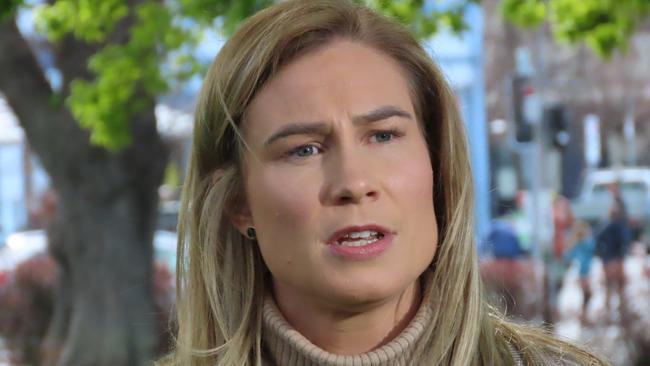
“That’s a disgrace, an absolute con job on the people of
Tasmania and I’m very concerned that what we will see when this bill is presented to parliament is a nod and a wink between the two major parties and a deal is stitched up where public funding goes into the coffers of party administration.”
She said the gift from the public purse would entrench the incumbent major parties at the expended of smaller parties and newcomers.
Interstate jurisdictions which have adopted public funding for elections have done so to avoid the corrupting influence on donations from special interest groups.
The Liberals faced heavy criticism for their reliance on cash from gambling interests in the 2108 poll, although reforms first promised by then Premier Will Hodgman have been slow to materialise and Tasmania’s laws on electoral donations remain the weakest in the country.
Greens MP Rosalie Woodruff said her party supported the idea of public funding.
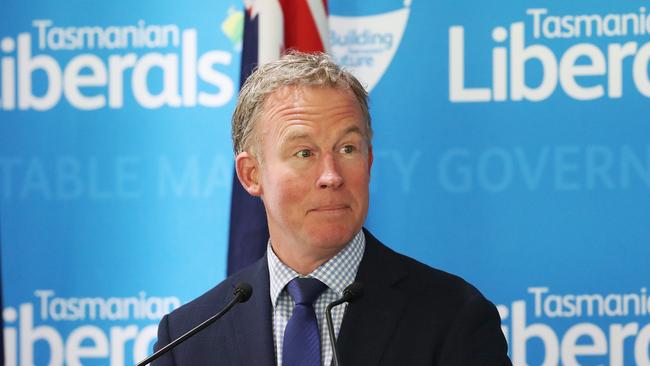
“We are the last state in Australia to introduce the ability for everyone to participate in democracy by providing a public payment or return to people who stand for election,” she said.
“We strongly support the right of everyone who wants to represent their community in good faith to stand for parliament.
“We believe that unless there’s public funding for elections, and a cap on the amount that candidates can spend, will never increase the diversity in parliament or get a fair playing field in elections.”
A govenrment spokesman said the govenrment was delivering the reforms it had promised.
“We are delivering on our commitment to introduce a fair, more transparent and modern political disclosure scheme in Tasmania.
“We believe the draft legislation for our two bills strikes the right balance, is fair and reasonable and will increase transparency while ensuring the public continues to have confidence in the outcomes of elections into the future.”
Submissions on the Electoral Disclosure and Funding Bill 2021 and Electoral Matters (Miscellaneous Amendments) Bill 2021 close at 5pm on Tuesday.




